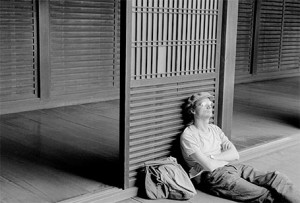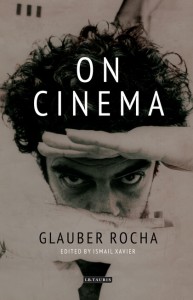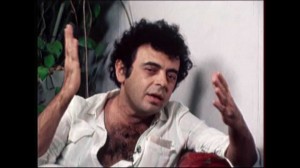From the July-August 2005 issue (NLR 34) of New Left Review.
An English translation of the first Daney collection cited below came out this year. — J.R.
Serge Daney,
La Maison cinéma et le monde, Volume 1: Le Temps des Cahiers, 1962-1981
P. O. L.: Paris 2001
Serge Daney,
La Maison cinéma et le monde, Volume 2: Les années Libé, 1981-1985
P. O. L.: Paris 2002

We could postulate three periods for the extraordinary flourishing of film culture brought about by the French New Wave: Before, During and After. André Bazin, of course, epitomized the first, as a founding editor of the Cahiers du Cinéma in 1951, a crucial contributor to auteur theory, and champion of postwar American films and Italian neo-realism against a stale French ‘quality cinema’. The Young Turks whom Bazin nurtured at the Cahiers — Jean-Luc Godard, Jacques Rivette, Claude Chabrol, Eric Rohmer, François Truffaut, and the somewhat younger Luc Moullet — mainly defined the second period: teenage iconoclasts who picked up the camera to become the stellar practitioners of the following decades.
Serge Daney (1944–92), who started out as a disciple of the New Wave crowd and described himself as a Bazinian early on, stands as the most original commentator of the third period, which he helped to usher in and continued to redefine up until his death from aids in 1992.
Read more
This is the Introduction to the fourth section of my first collection, Placing Movies: The Practice of Film Criticism (University of California Press, 1993). I’ve taken the liberty of adding a few links to some of the pieces of mine mentioned here which appear on this web site. — J.R.

This is the most rebellious and contentious section of the book, and because of this, some readers will regard it as the least practical or viable. Before you make up your own mind about this, however, I’d like to ask you to examine precisely what you mean by “practical” and “viable.” Do you mean most likely to change the world, or do you mean most likely to affect the majority? If in fact you believe that the likeliest way to change the world is invariably to affect the majority, then it might be beneficial to look at that premise a little more closely and see if it always holds up.
Speaking from my own experience, the times when I’ve reached the greatest number of readers at once — writing features in the pages of magazines like Elle and Omni — are the times when my point of view has had the least amount of effect. Read more
From the Fall 2019 issue of Cineaste. — J.R.

On Cinema
By Glauber Rocha, edited by Ismail Xavier. London/New York: I.B. Taurus, 2019, 306 pp., Hardcover: $110, Kindle: $85.

I’m strictly an amateur on the subject of Glauber Rocha (1939-1981), identified on the back cover of this pricey volume as “Brazil’s most important filmmaker and founder of the 1960s and ‘70s Cinema Novo movement”. But even a cursory glance at the limited availability of his films to Anglo-Americans without a grasp of Portuguese reveals that I have plenty of company, and this book offers us an invaluable starting-point for diminishing our ignorance. Eleven years in the making (and with ample confirmation that this painstaking care has paid off in terms of fluidity and clarity), with five individuals apart from Rocha listed on the title page — editor Xavier, general coordinator Lúcia Negib, Cecília Mello for final text and notes, and Stephanie Dennison and Charlotte Smith as translators — this is a rich assembly of articles drawn from three separate collections of Rocha’s writing: Critical Review of Brazilian Cinema (1963), The Cinema Novo Revolution (1981), and The Century of Cinema (1983), the first two of which were put together by Rocha himself. Read more




